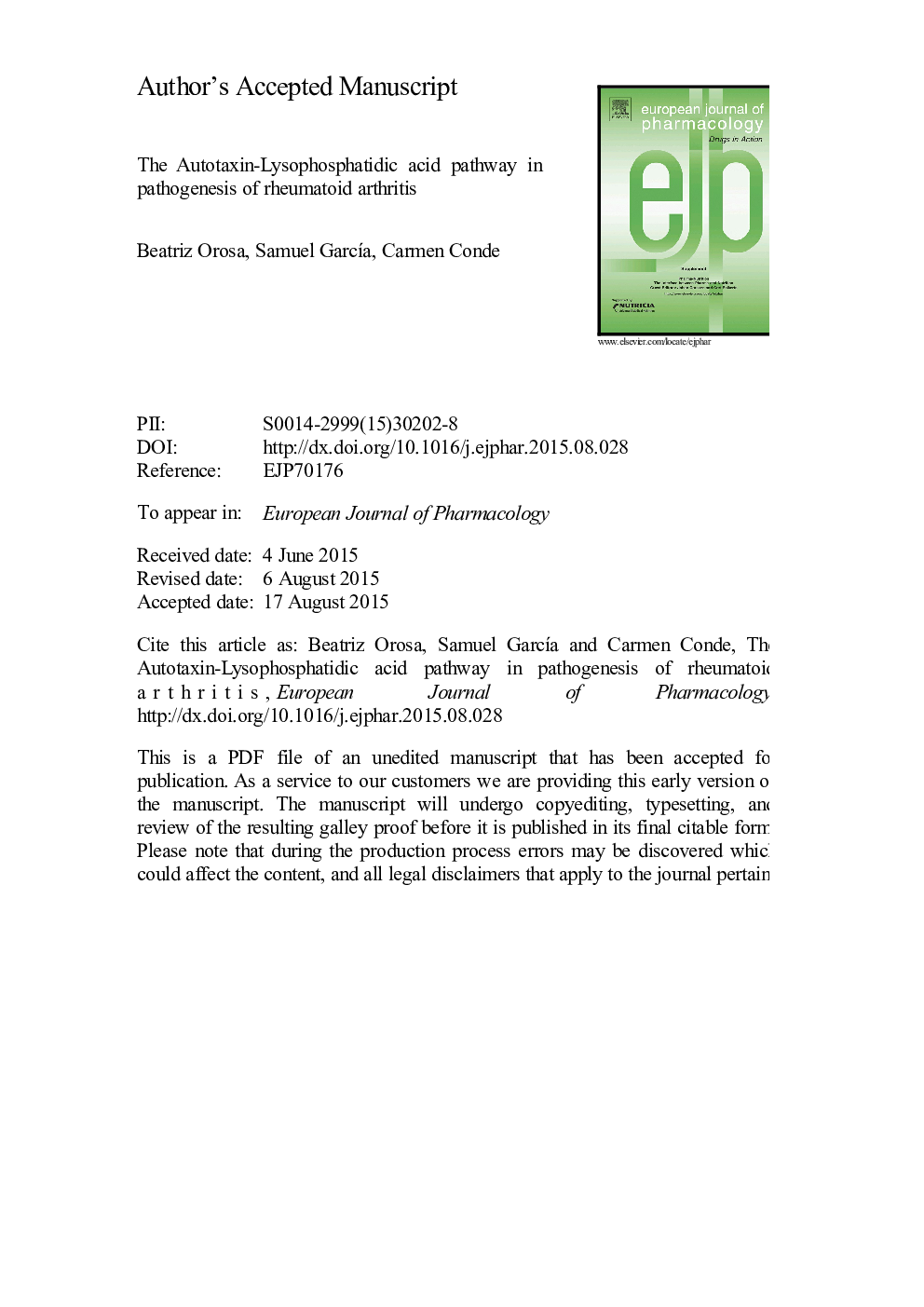| Article ID | Journal | Published Year | Pages | File Type |
|---|---|---|---|---|
| 5826851 | European Journal of Pharmacology | 2015 | 20 Pages |
Abstract
Lysophosphatidic acid (LPA) is a phospholipid that is mainly produced by the hydrolysis of lysophosphatidylcholine (LPC) by lysophospholipase D, which is also called autotaxin (ATX). LPA interacts with specific G-protein coupled receptors and is involved in the regulation of cellular survival, proliferation, differentiation and motility. LPA also has roles in several pathological disorders, such as cancer and pulmonary, dermal and renal fibrosis. The involvement of the ATX-LPA pathway has recently been demonstrated in inflammatory responses and apoptosis of fibroblast-like synoviocytes (FLS) from patients with rheumatoid arthritis and during the development of experimental arthritis. This review summarises the current literature of the ATX-LPA pathway in rheumatoid arthritis.
Keywords
Related Topics
Life Sciences
Neuroscience
Cellular and Molecular Neuroscience
Authors
Beatriz Orosa, Samuel GarcÃa, Carmen Conde,
